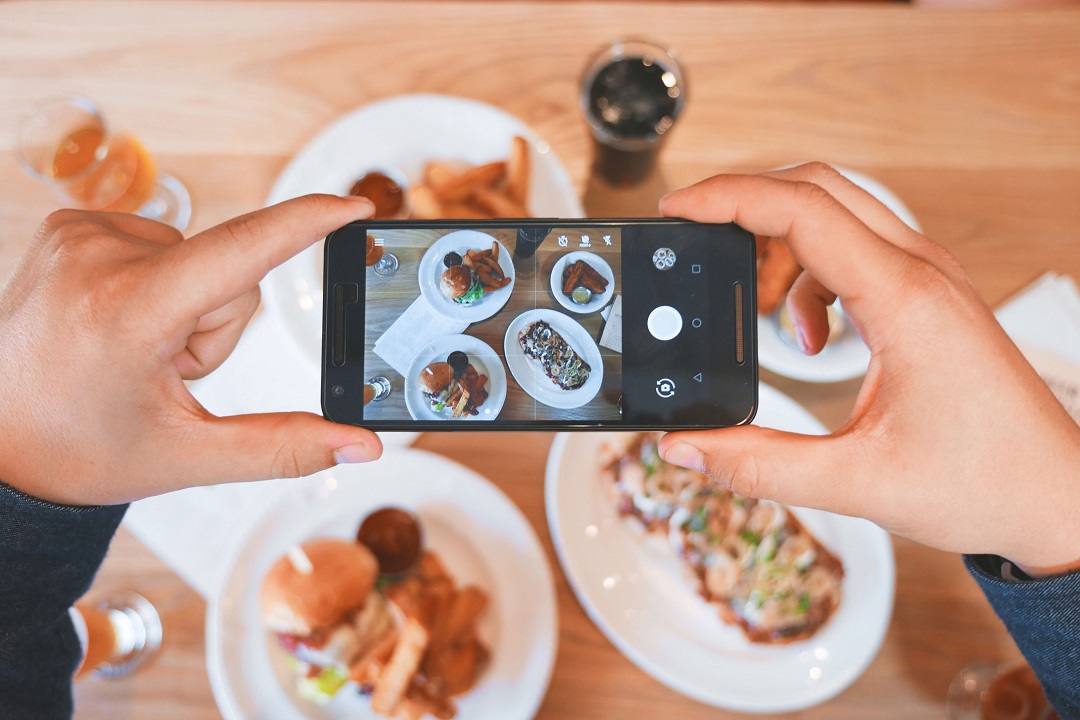Recently I’ve become very aware of my extremely high rate of iPhone, social media, and Internet consumption. I feel a constant pull towards my phone and experience sheer terror on the rare occasion it’s not next to me and I can’t remember where I saw it last. Living in a world inundated with the Internet, I’m sure it will come as no surprise to anyone that I am not the only one clutching my phone 24/7. In her latest book “The Power of Off” Nancy Colier writes that “Most people now check their smartphones 150 times per day, or every 6 minutes,” and “46 percent of smartphone users now say that their devices are something they ‘couldn’t live without.”[1] I know for a fact that I fit into both of those statistics, but I also know that I no longer want to. So, how do I disconnect, and what will my life look like without my iPhone purposefully out of reach? I am ready to find out.
Quitting the Internet
In his recent interview with GQ, Aziz Ansari—stand-up comedian, actor, and Master of None creator—confirmed rumors that he has indeed quit the Internet (including email!) and now only uses his phone to call and text. [2] He used to be like most of us; scrolling through Facebook, Instagram, Twitter, and news sites almost absentmindedly, not even absorbing and processing content, but just checking for something new to look at. People get addicted to the feeling of always searching for and finding the next hot topic, funny meme, or sensationalized news story, but is that really making us happy? According to Ansari the answer is no, and he is not alone. A recent article in The Atlantic found that high usage of smartphones and social media resulted in lower overall happiness and higher reports of depression symptoms in teenagers. [3] Ansari affirms that he is much happier without the Internet, now filling his time reading, learning new things, and actually enjoying his surroundings. That is the life I’m seeking, too!
Living a Disconnected Life
I can’t even count the amount of times that that I’ve been somewhere and I spent most of my time just looking at my phone; either to avoid feeling awkward, or because I felt compelled to check-in on social media and show all my friends the good time they weren’t having with me, or simply because I picked up my phone to look at the time and somehow ended up scrolling through my Facebook and Instagram for no clear reason. I don’t want to be that person anymore, so I too will be disconnecting from the Internet and starting to reconnect with myself. One where I can focus, absorb, and process new information, not care about the latest presidential blunder, and enjoy my life for me—not for the sake of showing off to others. My plan is to follow Ansari and quit cold-turkey, deleting all social media and web browsers from my phone. Colier offers a less intense series of steps that others looking to step away from their phone and step back into their life might find more suitable:
- Start by recognizing how much digital use is really needed, say, for work, navigation, or letting family members know you’re okay, and what is merely a habit of responding, posting, and self-distraction.
- Make little changes. Refrain from using your device while eating or spending time with friends, and add one thing a day that’s done without the phone.
- Become very conscious of what is important to you, what really nourishes you and devote more time and attention to it.
After years of intense co-dependence with my iPhone I am eager (and admittedly somewhat terrified) to see how I can enrich my brain and my life without the constant need to have a phone in my hand. Perhaps I can finally learn to ballroom dance, take up Hungarian embroidery, enjoy a meal without first snapping a picture of my food, travel without constantly checking in on Facebook, be truly present in the company of my friends and family, read a book without stopping to look at my phone every few chapters, or simply sit quietly and be comfortable and satisfied with my own thoughts and ideas.
References
[1] Brody, J. (2017, January 9). Hooked on our smartphones. The New York Times. Retrieved from https://www.nytimes.com/2017/01/09/well/live/hooked-on-our-smartphones.html
[2] Green, M.A. (2017, August 2). Aziz Ansari on quitting the internet, loneliness, and season 3 of Master of None. GQ. Retrieved from http://www.gq.com/story/aziz-ansari-gq-style-cover-story
[3] Twenge, J.M. (2017, August). Have smartphones destroyed a generation? The Atlantic. Retrieved from https://www.theatlantic.com/magazine/archive/2017/09/has-the-smartphone-destroyed-a-generation/534198/?utm_source=fbb


